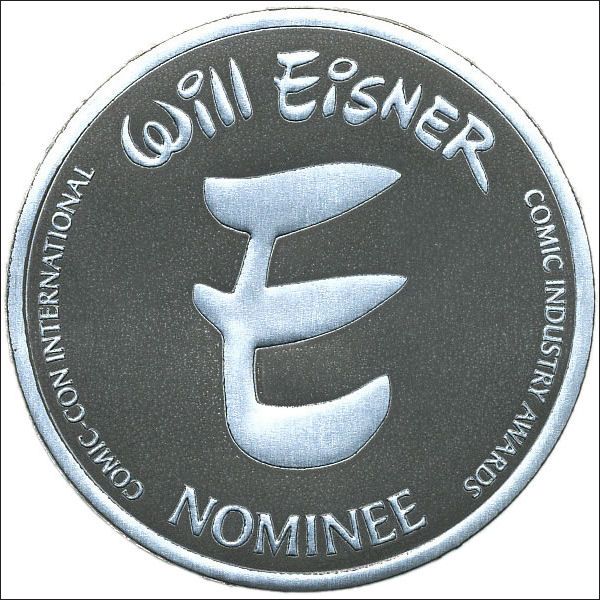A heated Twitter conversation that began Wednesday with Jimmy Palmiotti saying it was "a crime" Amanda Conner didn't receive an Eisner Award nomination for her work on Silk Spectre took an unexpected turn when Landry Walker pointed to a blog post by Eisner judge Frank Santoro in which he lists all the creators who contributed to Before Watchmen and says, "I refuse to buy or read anything by these folks."
"HOLY SHIT... how could he be a judge then??" Palmiotti replied.
The easy answer is that if everyone who expressed an opinion was eliminated from consideration, there would be no one left to be an Eisner judge. However, Josh Flanagan of iFanboy went straight to Santoro for a response:
I definitely had strong feelings about Before Watchmen when it was announced. However, once I became an Eisner judge, I took my responsibility seriously, set my feelings aside, and considered the books that were submitted—as did all the other judges. (And I don’t believe any of the other judges had actually seen that particular blog post.) These titles and creators were up against strong competition in all the categories for which they qualified, and ultimately none of them made the final nominations list. I actually went to bat for Steve Rude and Darwyn Cooke specifically. Some of the creators I listed in the posting are indeed nominated for Eisners for other work they did. So no, it did not affect the judging decisions.
I don't know Santoro, and I wasn't in the judging room, but as a former Eisner judge, this rings true. There's a world of difference between putting something on your personal blog in the heat of the moment and making a considered decision in a roomful of your peers, and I find it hard to believe that any Eisner judge would take the responsibility so lightly as to allow personal prejudice to interfere with the process.
There are a couple of reasons for this: Being a judge is an honor, and, as Santoro says, we take the responsibility seriously. But you're also one of six, and the other judges are taking it seriously, too. So even if I were to walk into the room with an agenda, it wouldn't last. Eisner judging is a collaborative effort; the judges have extensive, sometimes heated, discussions before voting. It is possible for one person to sink one book, maybe two, but maintaining a blacklist that long, and with that much talent, would be impossible, simply because the others wouldn't stand for it. I'm no apologist for Before Watchmen — haven't read it, don't care to — but I couldn't take seriously any process that eliminated the likes of Darwyn Cooke and Jill Thompson from the get-go. Nobody would.
What Santoro reads on his personal time is his business, but once he became an Eisner judge, his status changed. Trust me, there is no way in hell you could have gotten me to read The Art of Doug Sneyd, or even Daredevil, if it wasn't for a higher calling, but I ended up liking both of those a great deal and advocating for their nomination. Ultimately, as my fellow judge Larry Marder put it,
All the hoopdee-doo, the hype, the heat, the raving complimentary blurbs on the back cover, the placements on year's end top 10 lists, previous award-winning reputation of publisher and creative teams went out the window. It came down to the story I was reading at that moment and how that story filtered through my brain.
One final point: Flanagan raises the possibility of a conflict of interest because Santoro writes for The Comics Journal. Santoro refrained from voting in the comics journalism category, as I did when I was a judge. Eisner administrator Jackie Estrada states the general case: "In fact, if a conflict of interest occurs, whenever a judge has some kind of involvement in a potential nominee, that person is recused." Eisner judges come from a variety of areas: Creators, librarians, commentators, academics, retailers and administrators, and all are involved deeply in comics in some way. Conflicts of interest are inevitable. What's important is how they are handled, and I think Estrada and the Eisner panel have done a good job of that. It's not just requiring judges to abstain from a single vote, it's having a balanced panel of perceptive judges with different areas of expertise and setting up a collaborative process for them to make their choices.


